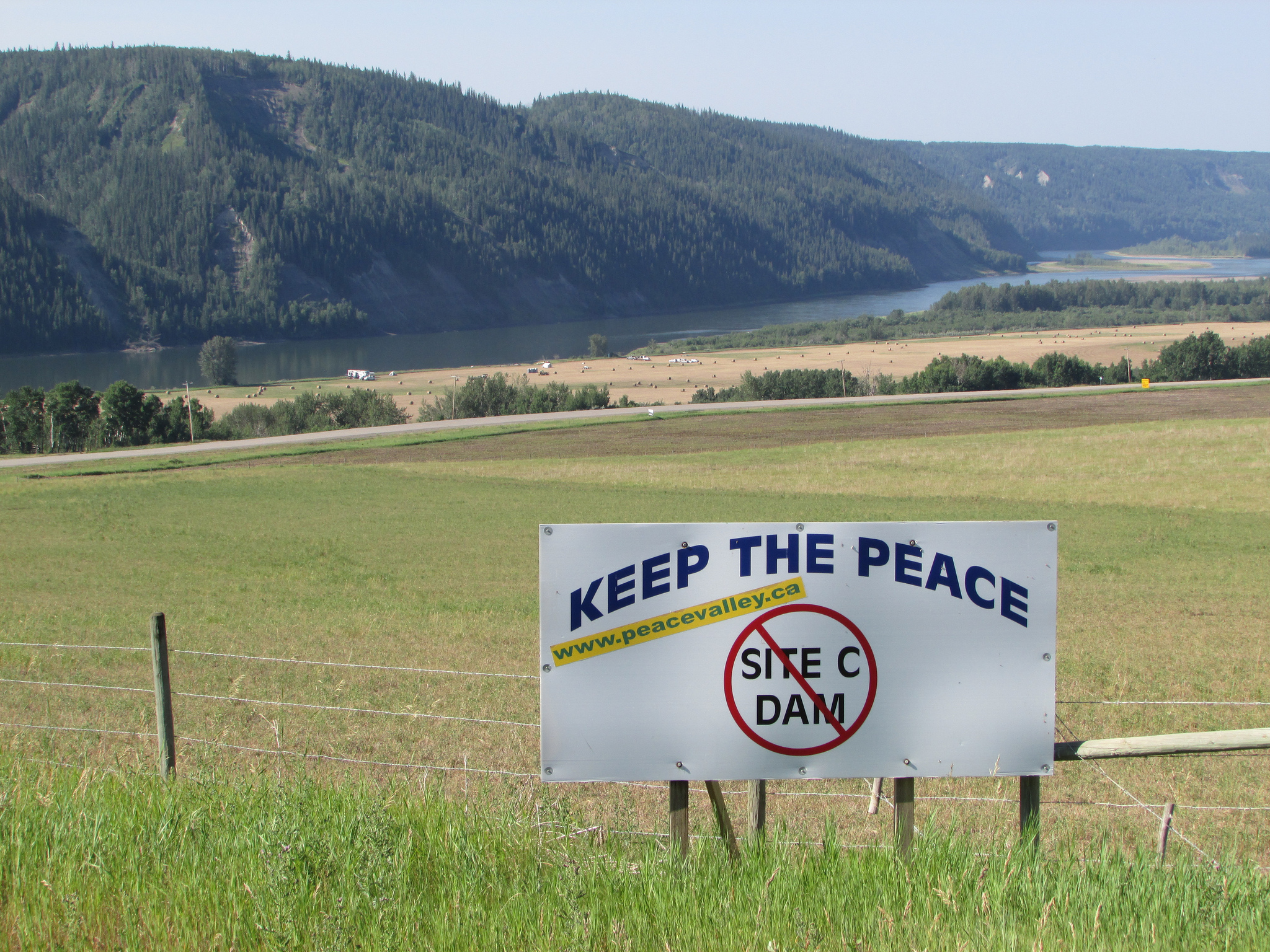A report released today by international human rights organization Amnesty International slams the Site C dam project in northern British Columbia as a threat to the human rights of Indigenous people in Canada.
The report, titled “The Point of No Return” – in reference to B.C. Premier Christy Clark’s comment about having much of the project built before the next provincial election – said the dam would flood a region of land vital to Indigenous people.
Report author Craig Benjamin said the area in question, almost 100 kilometres of the Peace River Valley near Hudson’s Hope, is a traditional hunting and harvesting area for Indigenous people and the project violates treaties.
The accusation of treaty violations has been brought to court through a lawsuit filed by the Blueberry River First Nations.
“These are human rights that are to be taken seriously,” Benjamin said. “Violation of rights is never acceptable; it causes real harm to Indigenous peoples in the Peace Valley.”
Benjamin also blasted the current federal government for issuing two permits needed for the Site C project in the last few weeks.
Fisheries and Oceans Canada approved permits for the project’s generator and spillway in July.
Benjamin said the approvals contradict the loud talk from the governing Liberal party about making reconciliation with Canada’s Indigenous people a priority.
In May, Canada received praise for throwing support behind the United Nations Declaration on the Rights of Indigenous Peoples and committing to implement it in accordance with the nation’s constitution.
At the time the Prophet River and West Moberly First Nations, which have demanded the Site C dam be stopped, said they doubted the sincerity of the federal government on the UNDRIP commitment.
Benjamin said the government’s actions on Site C have proven to be the opposite of what they promised in May, and he worries that is a sign of things to come in how Trudeau’s Liberals will work with Indigenous peoples.
The report also takes aim at possible problems with bringing in thousands of workers to construct Site C, arguing that services and infrastructure in the region couldn’t support the influx.
The strain could in turn put marginalized women in the region at risk by driving up the cost of housing and increasing demand on healthcare and other social services.
The report claims governments have not adequately considered these risks.
“This omission is particularly concerning given national and international attention to the disproportionately high rates of violence faced by Indigenous women and girls in British Columbia and across Canada,” it reads.
Minister of Indigenous and Northern Affairs Canada Carolyn Bennett was not available for comment late Monday.
The $9-billion dam will provide power to about 450,000 homes once completed.
But critics, including Benjamin, argue the business case for the project is flawed and that the dam has no purpose.
The federal government has said it is striving for a “balance” in reconciling opposing views on the project, but that approach worries Benjamin because the insinuation is that the rights of Indigenous peoples could be outweighed by a project’s supposed economic benefits.
“You stop and think about that, it is profoundly worrying,” he said. “If this is the value they place on the lives of Indigenous peoples, what hope is there for the protection of Indigenous rights for a project that comes along and has an actual purpose?” ![]()
Read more: Rights + Justice, BC Politics, Environment















Tyee Commenting Guidelines
Comments that violate guidelines risk being deleted, and violations may result in a temporary or permanent user ban. Maintain the spirit of good conversation to stay in the discussion.
*Please note The Tyee is not a forum for spreading misinformation about COVID-19, denying its existence or minimizing its risk to public health.
Do:
Do not: